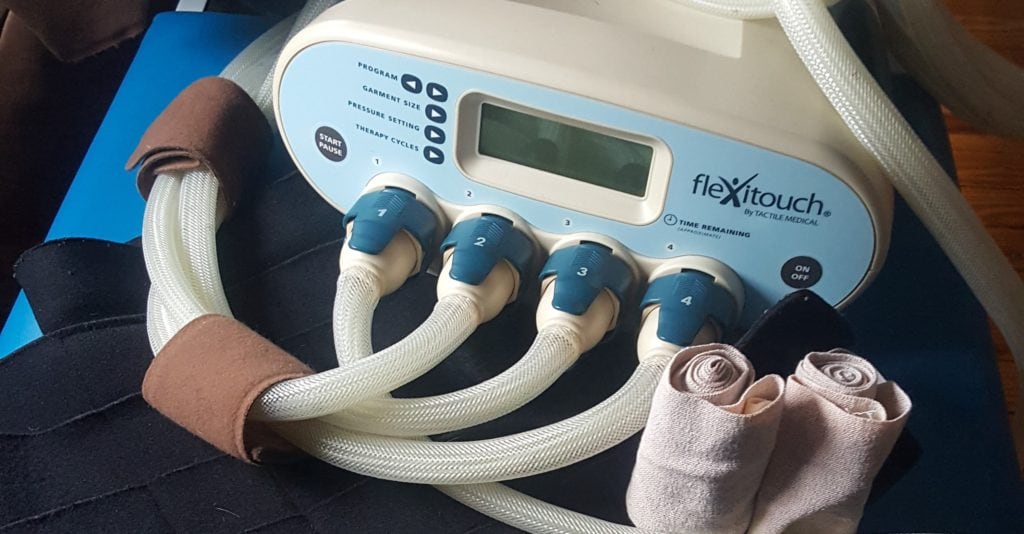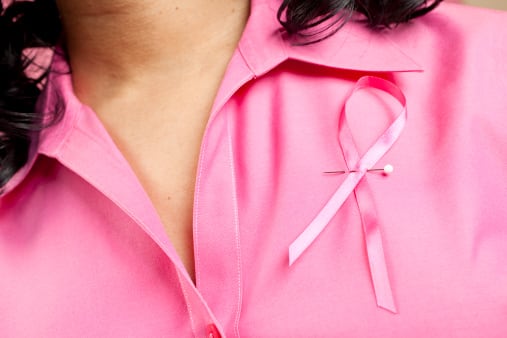By Anneliese Bruner
My legs swell uncontrollably unless I monitor and manage them closely. You see, I was born with primary bilateral lymphedema of the lower extremities. On this World Lymphedema Day, the culmination of Lymphedema Awareness Week, I invoke the same question I asked a year ago, and will no doubt continue to ask: What am I gonna do about my legs?
There are things that I and others with this chronic, progressive disease can do, but we have to be smart about it. Smarter than I was when I went to a new and unfamiliar massage studio seeking out manual lymphatic drainage (MLD).
The first time I had MLD was in 1999 when I traveled with a college friend to Hammamet, Tunisia to celebrate our 40th birthdays at a thalassotherapy spa. During the intake examination with the medical director, my chart was marked with the term “heavy legs,” and MLD was prescribed as part of my health regimen. I had never heard the term used for people like me before, but this European-trained doctor didn’t seem baffled by my condition the way doctors at home in the States were. It was the perfect description for what my legs look and feel like. Heavy.
At my MLD appointment, the therapist worked along my lymphatic system, using light, rhythmic strokes in a deliberate sequence to open the channels that permit the lymph fluid to flow. A tingling sensation in my feet and legs told me something was happening and that the treatment was working. I had several sessions during my 10 days in Hammamet and my legs felt lighter, but I fell off the wagon upon returning home to Washington, DC, partly because it was hard to find a practitioner.
Fast forward 20 years, and I’ve now experienced cellulitis, been hospitalized with sepsis, and had a superficial vein thrombosis in my left leg from a treatment that was supposed to help with the swelling.
After my hospitalization, I was referred to a certified lymphedema therapist, at Georgetown University Hospital, for the very first time. She told me the things that I should do (beyond leg elevation and support socks, which I had used before) to manage my legs better: bandaging, specialized leg garments, pneumatic pumping, exercise, water aerobics, and MLD. I identified a great MLD therapist and went to her as often as I could. It’s expensive and insurance does not cover this therapy modality. Also, she wasn’t located close to my home in DC.
These factors persuaded me to make a decision that was not the best one. I found a massage studio in DC that claimed to provide MLD.
MLD has gained in popularity as a post-liposuction treatment, a facial beauty protocol, and a way to alleviate abdominal bloat. But which masseurs really have the training?

Now let me take a minute here to provide context. MLD has gained in popularity as a post-liposuction treatment, a facial beauty protocol, and a way to alleviate abdominal bloat. I imagine that this trend has contributed to masseurs with little to no training in actual MLD claiming the specialty as a way to take financial advantage of the growing demand. I received a massage from one such person, and it was a heartbreaking experience. I went in thinking that the person understood my condition, something that is a very sensitive issue for people living with this disease, and found that he didn’t.
When he asked me what area of the body he should focus on, I knew he was poorly informed. In MLD, the entire lymphatic system is addressed throughout the body, and no part is neglected. He pressed too hard and became offended when I asked him to use the light, rhythmic strokes that a competent practitioner would have known. I felt an overwhelming sense of betrayal and sadness — for myself and for the many others with this disease who are suckered into believing that someone understands them and can help.
I have returned to my Vodder-trained therapist and could not be more thankful that I have her help, guidance, and understanding. In fact, her mother is a lymphedema patient, and I know that my therapist cares. She’s worth the investment and then some.








